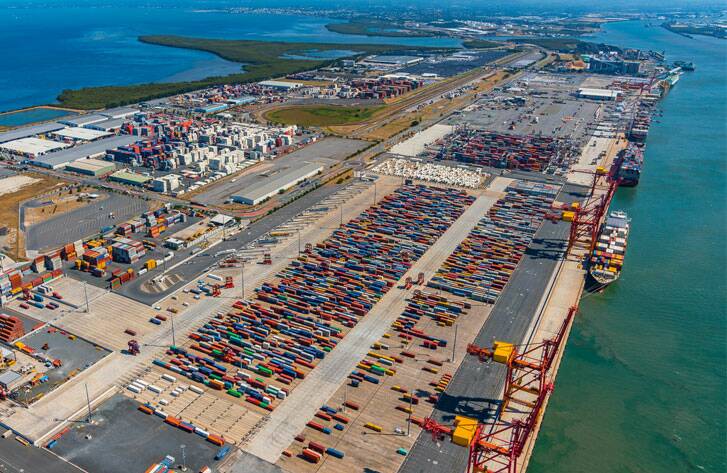
LIMITED movements are underway again at Australia's largest beef export port at the mouth of the Brisbane River, following the devastating floods.
Subscribe now for unlimited access to all our agricultural news
across the nation
or signup to continue reading
However it could be another week or more before operations are back to normal, which may force some exporters to reconsider the logistics of time and temperature sensitive shipments like chilled beef to high-end markets such as Japan.
The Port of Brisbane has been closed since February 28 and its latest statement says while river conditions are improving, the Regional Harbour Master and hydrographic survey and operations teams are still discovering navigational area obstructions such as debris and shoaling.
Meat industry consultant Stephen Martyn said the slow and gradual return to normal movements at this port was likely to affect the export logistics of every processor in Queensland, and others further afield.
"In years gone by, some of the carriers to major export markets would call at northern Queensland ports to service markets like the United States but these days the major container lines only call at Brisbane as part of their global service so containers have to be consolidated through Brisbane," he said.
All plants consolidating shipments through Brisbane are indirectly affected by the disaster, whether they were directly impacted by the floods or not, he said.
"Port authorities have been doing a great job over the last couple of weeks in managing the risks involved and keeping everyone advised, looking to get operations back to normal as quickly as possible," he said.
Individual processing plants were now starting to assess the damage, the significant costs of recovery, staffing issues and disrupted logistics and transport as they come back online, Mr Martyn said.
The Australian Meat Industry Council said the severity of impact had ranged from loss of processing days through to extensive damage to processing and supply infrastructure.
Chief executive officer Patrick Hutchinson said the impact on both the processing and production sector would be huge.
And it comes on top of other severe challenges including the Omicron wave and an ongoing shortage of cattle.
"The whole post-farmgate meat supply chain is wondering how much more it can take," he said.
ALSO SEE:
Slaughter reporting from Meat & Livestock Australia has been on hold since the floods hit but numbers are expected to be depressed for some weeks, as saleyard throughput has been.
Flooding caused significant road closures in NSW and Queensland, impacting producers' ability to send cattle to saleyards or processors. Some of those roads remain closed.
Yarding levels in Queensland were more than halved last week, contributing to a national dip of 36 per cent with just 30,305 head sold, Thomas Elders Markets reported.
Compared to this week in 2021, volumes were down by 26pc and looking at the five-year average trend the numbers were even more tight with weekly throughput running nearly 41pc softer, TEM reported.
MLA analysts said restocker demand in central and western Queensland - where there were significant rainfall events but no flooding - increased with the price for young cattle in places like Roma up.
- For comprehensive analysis on Australia's beef export markets and processing business, see Stephen Martyn's Over the Hooks column in this week's Queensland Country Life and The Land.
For all the big news in beef, sign up below to receive our Red Meat newsletter.


